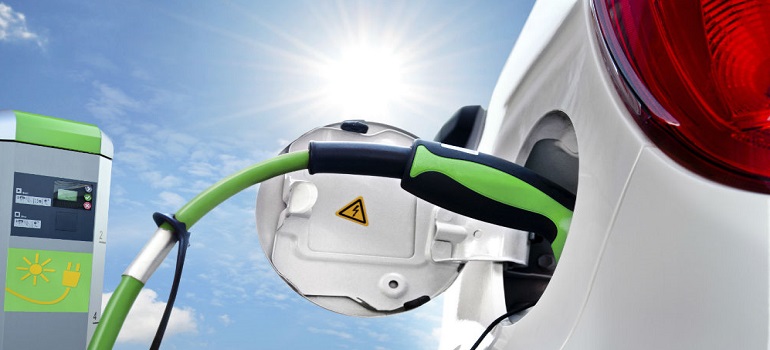Solar2EV Project to Provide Training, EVs, and Clean Energy Access to 50,000 Women
In a landmark collaboration, the Government of India, the Government of Maharashtra’s Social Justice Department, and the Automotive Skill Development Council (ASDC) have joined forces to launch the PM EV2Solar Project for Social Justice. This ambitious initiative aims to empower 50,000 women across the country by providing them with access to solar energy, electric vehicles (EVs), and vital skill development training.
The project prioritizes the distribution of EVs to socially disadvantaged women through government schemes. This empowers them with mobility, fostering economic independence and creating new opportunities. Union Minister of State for Social Justice & Empowerment, Shri Ramdas Athawale, emphasized, “These vehicles will be distributed through government schemes, empowering women with mobility and economic opportunities, uplifting marginalized communities.”
The Solar2EV initiative is a beacon of innovation, inclusivity, and sustainable development. “This initiative reflects our unwavering commitment to inclusive growth and sustainable development, empowering communities across Maharashtra and beyond,” added Minister Athawale.
The ASDC plays a pivotal role by spearheading skill development programs specifically designed for women. Vinkesh Gulati, Vice President of ASDC, stated, “The Solar2EV initiative is at the heart of empowering societal change, particularly for women. By focusing on skill development, we’re ensuring that women are at the forefront of this transformative journey in Maharashtra’s growing EV and solar sectors.”
The project seeks crucial Corporate Social Responsibility (CSR) contributions from the Indian corporate sector, particularly the automotive industry. This collaboration will establish a robust solar-to-EV infrastructure across Maharashtra. Additionally, stakeholders like e-commerce giants and ride-hailing applications are encouraged to leverage social justice funds for innovative solutions within the EV sector.
A dedicated task force led by Social Justice Commissioner Om Prakash Bhakoria and Randheer Singh, a former director at Niti Aayog, will focus on developing socially sustainable products through ASDC’s training programs. Bhakoria noted, “Such initiatives are essential for ensuring equitable distribution of opportunities among disadvantaged groups.”
The project launch coincided with the ceremonial flag-off of a women’s electric vehicle rally, symbolizing the official commencement of the Solar2EV initiative. Leading figures from the automotive industry, electric vehicle manufacturers, and financing companies have expressed their enthusiastic support for the project. Sameer Agarwal, Founder & CEO of RevFin, a company specializing in EV financing, highlighted the growing role of women in the EV sector. “Women have embraced opportunities in EV financing, transcending traditional gender roles. RevFin’s Stree Shakti program aligns with the government’s vision of empowering women,” Agarwal said.
Omega Seiki Mobility, electric vehicle manufacturer, has pledged to provide 3,000 electric vehicles specifically for women-run initiatives. Uday Narang, Founder and Chairman of the company, stated, “This initiative is a testament to our commitment to fostering a more inclusive and sustainable future, where the wheels of progress are driven by the indomitable spirit of women.”
Creating a Sustainable Urban Future
The Solar2EV project, when integrated with existing social justice schemes, has the potential to create over 100,000 new jobs, particularly in the EV-powered cargo delivery sector. Randheer Singh, Co-Founder of Forsee Consulting, the project’s knowledge partner, emphasized the transformative impact on gig workers and the environment. “Cargo delivery powered by EVs will usher in a new chapter in sustainable urban mobility,” Singh concluded.
The Solar2EV initiative presents a groundbreaking vision for India’s future. By empowering women, promoting clean energy, and fostering sustainable economic growth, this project has the potential to create a more equitable and prosperous future for all.


